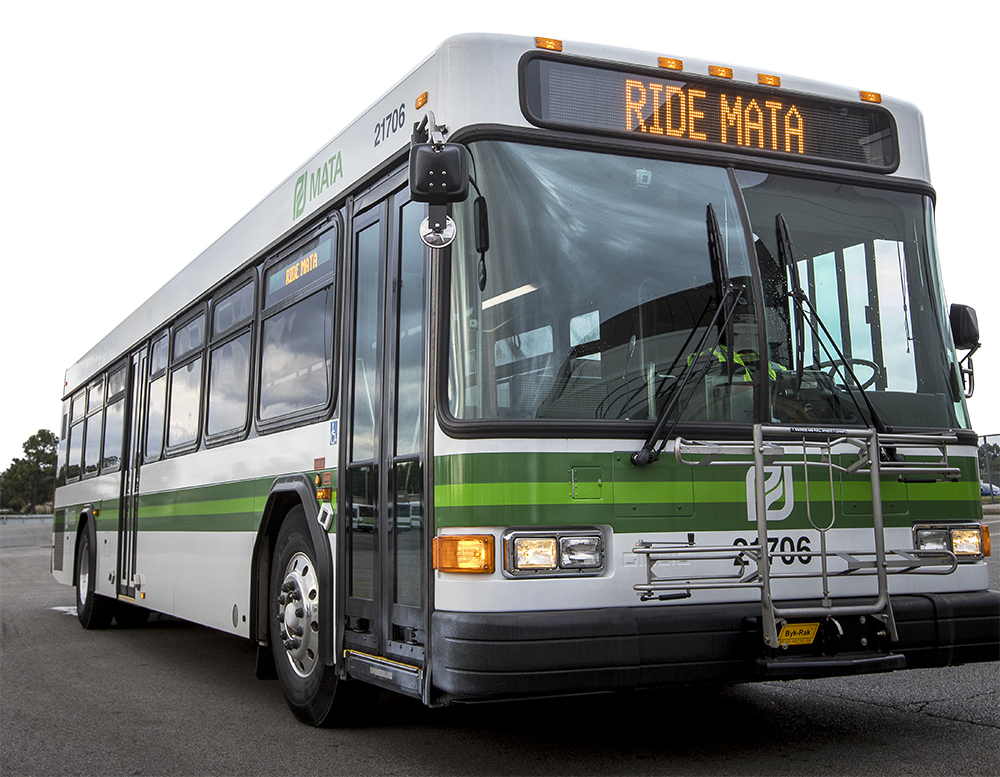Riders and citizens are calling on city leaders to intervene regarding the effects of the Memphis Area Transit Authority’s(MATA) newest budget.
These comments come days after the $67 million budget was approved unanimously by the agency’s Board of Commissioners. Prior to the approval, interim CEO Bacarra Mauldin and her team had been open about how the budget would affect both riders and personnel with routes being suspended and more than 200 employees being laid off.
While MATA had been vocal about these proposed changes, this didn’t make it easier for the public to accept, and are calling on the city to intervene. In a statement released by the Moral Budget Coalition, Bennett Foster, executive director for Memphis For All said these changes will affect “tens of thousands of Memphians,” and the city “has the power to prevent that.”
“Chronic underfunding has already led to reduced transit services, hitting hardest in majority Black neighborhoods that depend on public transportation the most,” Foster said in a statement. “This situation jeopardizes public safety, economic mobility, and racial justice. Enhancing MATA is not only vital for connecting residents to jobs, healthcare, and education–it is also crucial for the economic growth and overall quality of life in Memphis.”
The Moral Budget Coalition has asked for Mayor Paul Young and the Memphis City Council to allocate at least $20 million to MATA. They have several recommendations such as increasing property taxes, re-allocating portions of rainy day funds, and increasing vehicle registration.
MATA officials have noted that the city has historically been their primary funding source. During this year’s budget season, Memphis City Council allocated $30 million for Fiscal Year 2025.It was also during this budget season that officials said they would be more involved in MATA’s budget moving forward.
Members of the coalition spoke about how citizens are dependent on public transit for their transportation needs. Foster said the city is primarily responsible for maintaining transit service, and that he felt MATA had not been a priority in current and previous administrations.
“We are here to make sure that cycle of chronic disinvestment in public transit and public services –it begins and ends here,” Foster said. “If we don’t take action now – it’ll be too late. If MATA is cutting their employees in half, cutting their service by 30 percent we’re gonna lose access to federal funds, we could lose formula funds that match our budget and we’re gonna get into a debt spiral.”
The public also made comments during this month’s meeting. One attendee said they didn’t agree that the agency was out of options for revenue and suggested that the city tax airplane passengers, real estate transactions, football and basketball tickets, as well as offering Beale Street transportation.
“If you don’t think this is a desperate situation, I’m telling you it is,” the attendee said.
Funding has long been an issue for MATA since the pandemic. During Tuesday’s board meeting, Mauldin stressed this saying that the agency struggled to receive consistent funding as CARES funds ran out.
“MATA has operated for a number of years without any increases in the amount operating funds made available to it,” Hamish Davidson, external CFO of J.S. Held LLC said during Tuesday’s meeting. “It has managed to survive and indeed grow beyond its means through the provision of the CARES Act funds made available post Covid.”
Davidson said MATA cannot sustain itself without the increase of funds, and they receive 95 percent of their funding from federal,state, and local funds. The other 5 percent comes from advertising and farebox revenue. Davidson said that historically funding had not stayed static, but it has reduced with no regard to inflation, and that the last two budgets were deficit budgets.
In addition to rising operating costs a majority of MATA’s costs stem from employee compensation and benefit packages. Davidson also said they have reached a new collective bargaining agreement for union members.
